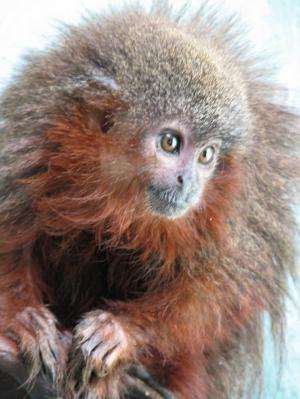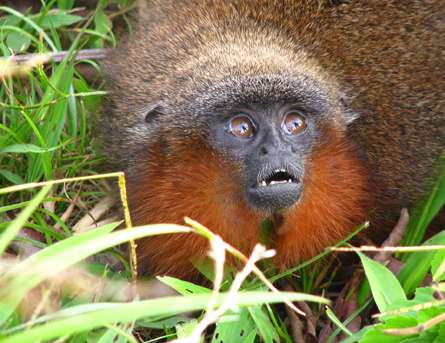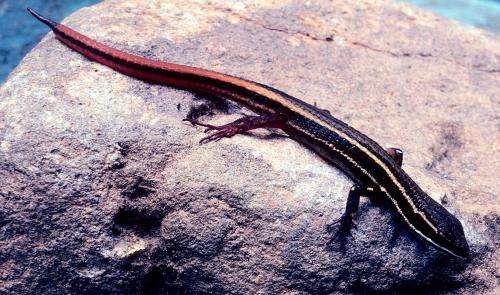Monkey that purrs like a cat is among new species discovered in Amazon rainforest

At least 441 new species of animals and plants have been discovered over a four year period in the vast, underexplored rainforest of the Amazon, including a monkey that purrs like a cat.
Found between 2010 and 2013, the species include a flame-patterned lizard, a thumbnail-sized frog, a vegetarian piranha, a brightly coloured snake, and a beautiful pink orchid, according to World Wildlife Fund (WWF).
Discovered by a group of scientists and compiled by WWF, the new species number 258 plants, 84 fish, 58 amphibians, 22 reptiles, 18 birds and one mammal. This total does not include countless discoveries of insects and other invertebrates.
"These species form a unique natural heritage that we need to conserve. This means protecting their home – the amazing Amazon rainforest – which is under threat from deforestation and dam development," said Claudio Maretti, Leader of Living Amazon Initiative, WWF.
Some of the most remarkable species outlined in the report include:
• Flame-patterned lizard: This beautiful lizard was found from the hatchlings of eggs collected by scientists in the Colombian Amazon. An elusive species, Cercosaura hypnoides, has not been seen in the wild since the original eggs were collected, raising the prospect that it could potentially be endangered.
• Thumbnail-sized frog: This amphibian is already believed to be highly endangered. In fact, its Latin name, Allobates amissibilis, meaning "that may be lost," alludes to this as the area where it thrives could soon be opened to tourism. This is now the third Allobates species found in Guyana.
• Vegetarian Piranha: This new species of piranha, Tometes camunani, can span 20 inches wide and weigh up to 9 pounds, and is strictly herbivorous. The freshwater fish inhabits rocky rapids associated with seedlings of plants that grow among the rocks, its main source of food. Tometes is described from the upper drainages of the Trombetas River basin, Para, Brazilian Amazon.
• A brightly coloured snake from the "Lost World": Found in the mountains of Guyana, this brightly-colored snake species was named Chironius challenger after Arthur C. Doyle's fictional character Professor George Edward Challenger in the novel, The Lost World.
• A beautiful pink orchid: Among the new plant species are a large number of new orchid species, including this splendid pink species, Sobralia imavieirae, officially described by scientists from Roraima in the Brazilian Amazon.
• Caqueta titi monkey: This new species, Callicebus caquetensis, is one of about 20 species of titi monkey, which all live in the Amazon basin. The babies have an endearing trait, "When they feel very content they purr towards each other," explained scientist Thomas Defler.

Many of the new discoveries are believed to be endemic to the Amazon rainforest and are found nowhere else in the world. This makes them even more vulnerable to rainforest destruction that occurs every minute across the Amazon.

"Compiling and updating data on new species discovered in the vast extension of the Amazon over the last four years has shown us just how important the region is for humanity and how fundamentally important it is to research it, understand it and conserve it. The destruction of these ecosystems is threatening biodiversity and the services it provides to societies and economies. We cannot allow this natural heritage to be lost forever," Maretti said.
Provided by WWF




















